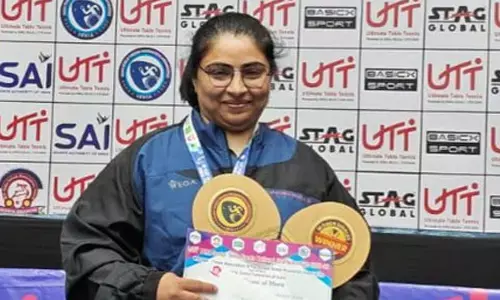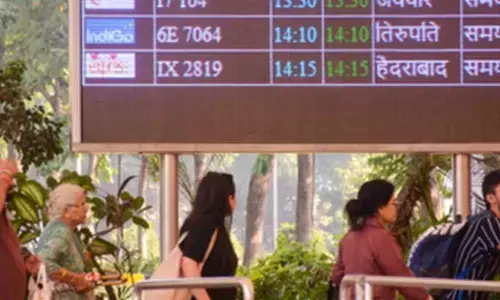Nurturing dreams of financial well-being

World Thrift Day, celebrated on October 31 globally and October 30 in India, serves as a vital reminder of the essential role saving plays in financial well-being.
World Thrift Day, celebrated on October 31 globally and October 30 in India, serves as a vital reminder of the essential role saving plays in financial well-being. Established in 1924 in Milan, Italy, this day emphasizes the importance of thrift and encourages individuals to develop the habit of saving for future needs. In India, the observance was moved to October 30 in 1984 following the death of then-Prime Minister Indira Gandhi. As the world come together to honor this day, they emphasize not just the act of saving money, but also the broader values of financial prudence, security, and the hopeful aspiration for a better future. World Thrift Day inspires people to recognize the benefits of managing resources wisely, fostering a culture of financial literacy that can empower generations to come.
The Government of India is dedicated to fostering a culture of saving, with the Ministry of Finance offering a diverse tapestry of savings products tailored to meet the varied needs of society. Each scheme serves not merely as a financial tool but as a stepping stone toward a more secure future.
The National Savings Institute (NSI), a guardian of these savings schemes, works tirelessly to promote financial literacy. Picture a bustling Post Office, where families come to open accounts, invest in their dreams, and build a safety net for unexpected moments. The NSI engages in national-level campaigns, ensuring that everyone knows the benefits of saving, whether it’s for a child’s education or a comfortable retirement.
Among the offerings are the Post Office Savings Account, which invites individuals to start saving with a minimum deposit of ₹500 and features tax-free interest on amounts up to ₹10,000. Families often choose the National Savings Recurring Deposit Account, encouraging disciplined monthly contributions, allowing them to save just ₹100 each month towards their aspirations.
For those dreaming of long-term security, the Public Provident Fund Scheme nurtures savings over 15 years, providing tax-free interest and flexibility for withdrawals and loans. The Mahila Samman Savings Certificate, recently launched, empowers women with a higher interest rate of 7.5% per annum, sparking excitement among families eager to invest in their daughters’ futures. Meanwhile, the Sukanya Samriddhi Account specifically supports parents of girl children, allowing them to save for education and empowerment.
The National Savings (Monthly Income Account) Scheme ensures families can receive regular income, with a maturity period of five years and interest paid out monthly. For senior citizens, the Senior Citizen Savings Scheme offers a safe haven, allowing a minimum investment of ₹1,000 with a maximum of ₹15 lakhs, ensuring a steady income during retirement. The National Saving Certificate (VIII issue) provides a secure investment option with tax rebates, while the Kisan Vikas Patra allows money to double on maturity, making it an appealing choice for many savers.
In the spirit of nurturing responsible financial habits from a young age, the newly introduced National Pension System Vatsalya shines brightly. Designed for minors, this scheme allows parents to invest a minimum of ₹1,000 per month, setting the stage for their children’s financial journeys. It’s not just about the present; it’s about laying a foundation for a secure future, teaching the value of saving before they even reach adulthood.
The World Thrift Day embraces a philosophy grounded in the power of saving, the importance of financial security, and the aspiration for a brighter tomorrow. This day serves as a reminder for everyone to cherish their resources, invest in their dreams, and impart the wisdom of thrift to future generations, fostering a culture of financial literacy and resilience. (PIB)











